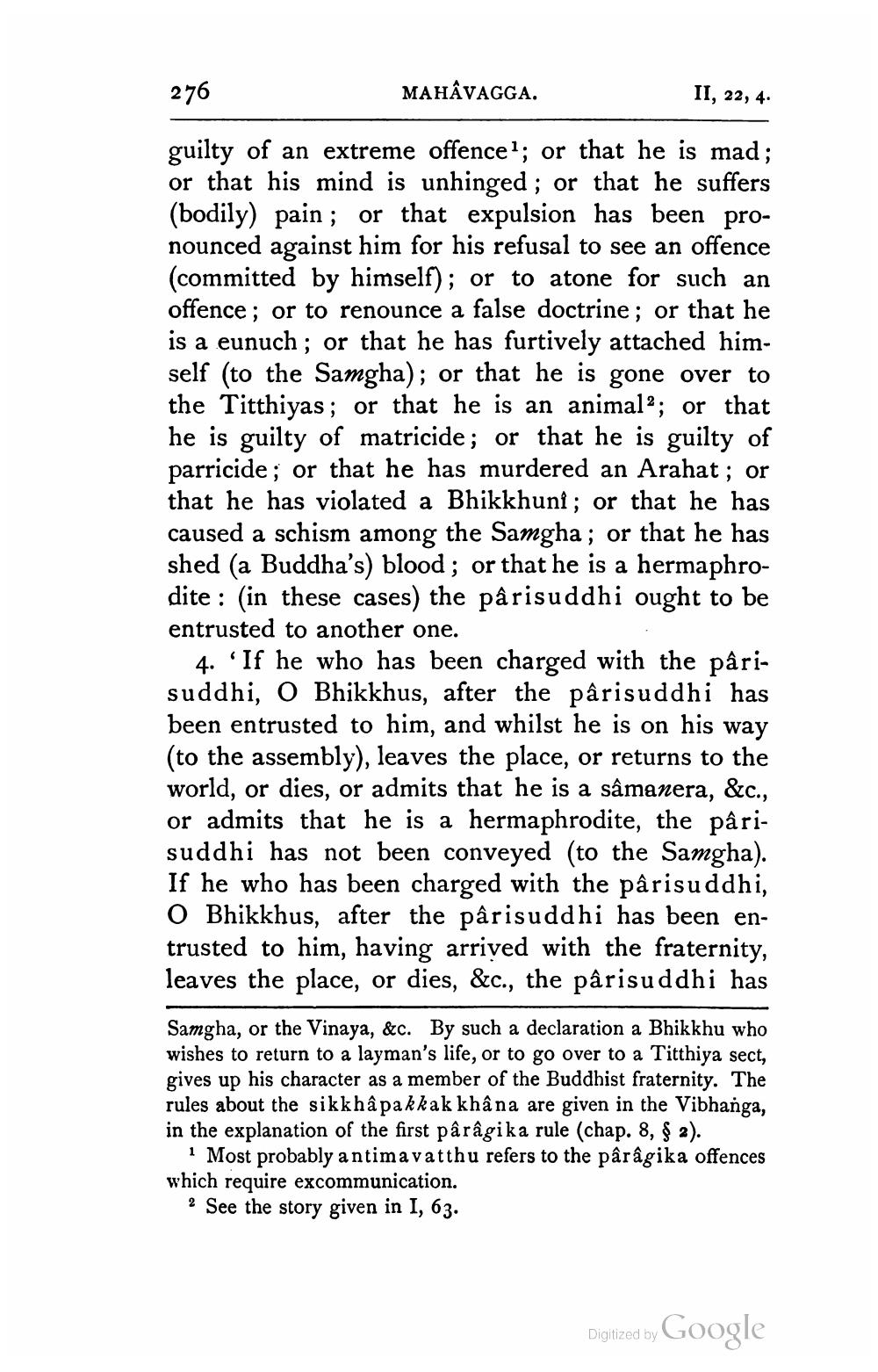________________
276
MAHÂVAGGA.
II, 22, 4.
guilty of an extreme offence?; or that he is mad; or that his mind is unhinged; or that he suffers (bodily) pain; or that expulsion has been pronounced against him for his refusal to see an offence (committed by himself); or to atone for such an offence; or to renounce a false doctrine; or that he is a eunuch; or that he has furtively attached himself (to the Samgha); or that he is gone over to the Titthiyas; or that he is an animala; or that he is guilty of matricide; or that he is guilty of parricide; or that he has murdered an Arahat; or that he has violated a Bhikkhuni; or that he has caused a schism among the Samgha; or that he has shed (a Buddha's) blood; or that he is a hermaphrodite : (in these cases) the pârisuddhi ought to be entrusted to another one.
4. If he who has been charged with the pârisuddhi, O Bhikkhus, after the pârisuddhi has been entrusted to him, and whilst he is on his way (to the assembly), leaves the place, or returns to the world, or dies, or admits that he is a sâmanera, &c., or admits that he is a hermaphrodite, the pârisuddhi has not been conveyed (to the Samgha). If he who has been charged with the pârisuddhi, O Bhikkhus, after the pârisuddhi has been entrusted to him, having arrived with the fraternity, leaves the place, or dies, &c., the pârisuddhi has
Samgha, or the Vinaya, &c. By such a declaration a Bhikkhu who wishes to return to a layman's life, or to go over to a Titthiya sect, gives up his character as a member of the Buddhist fraternity. The rules about the sikkhâpakkak khâna are given in the Vibhanga, in the explanation of the first pârâgika rule (chap. 8, § 2).
1 Most probably a ntimavatthu refers to the pârâgika offences which require excommunication.
2 See the story given in I, 63.
Digitized by Google




